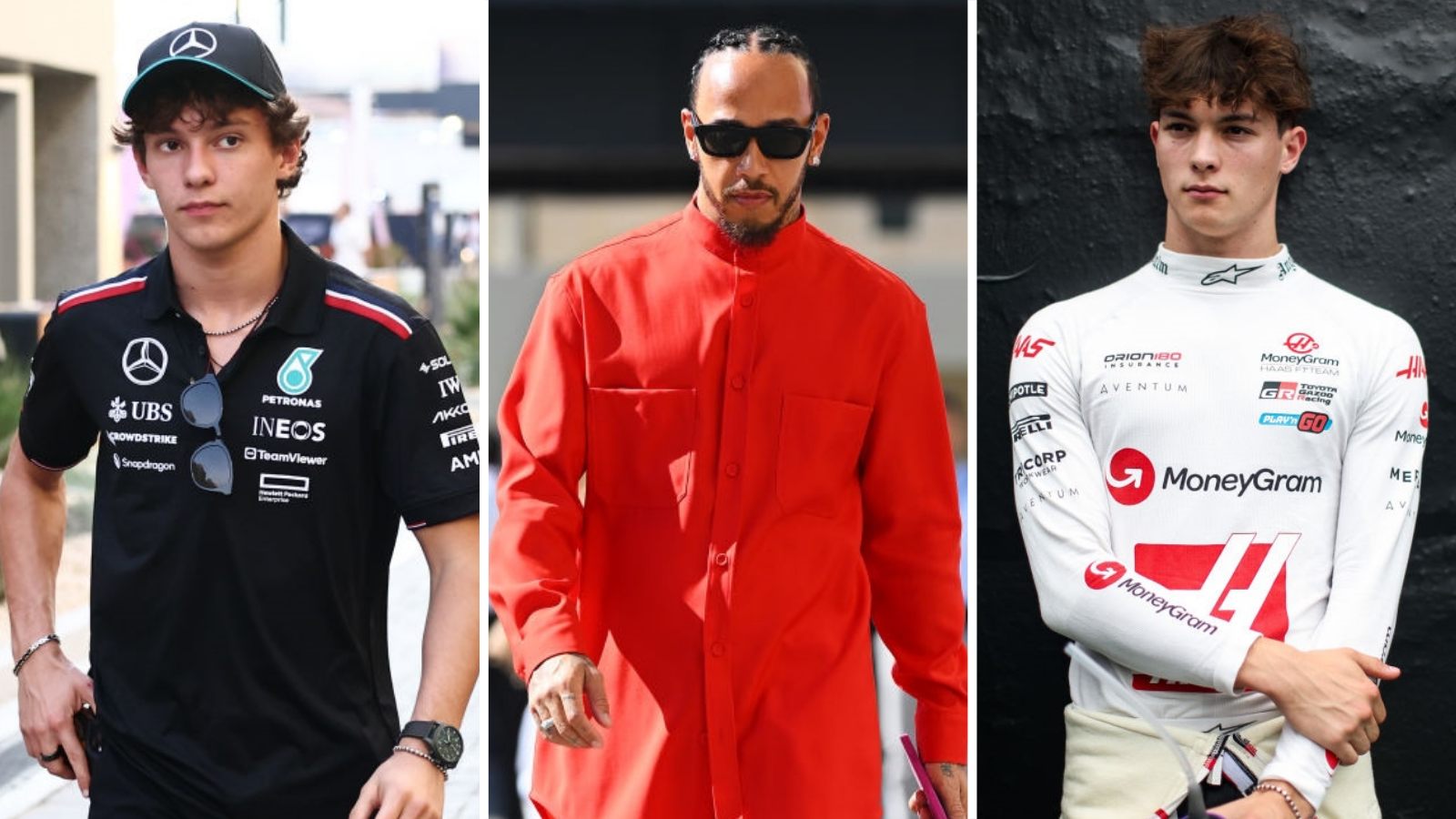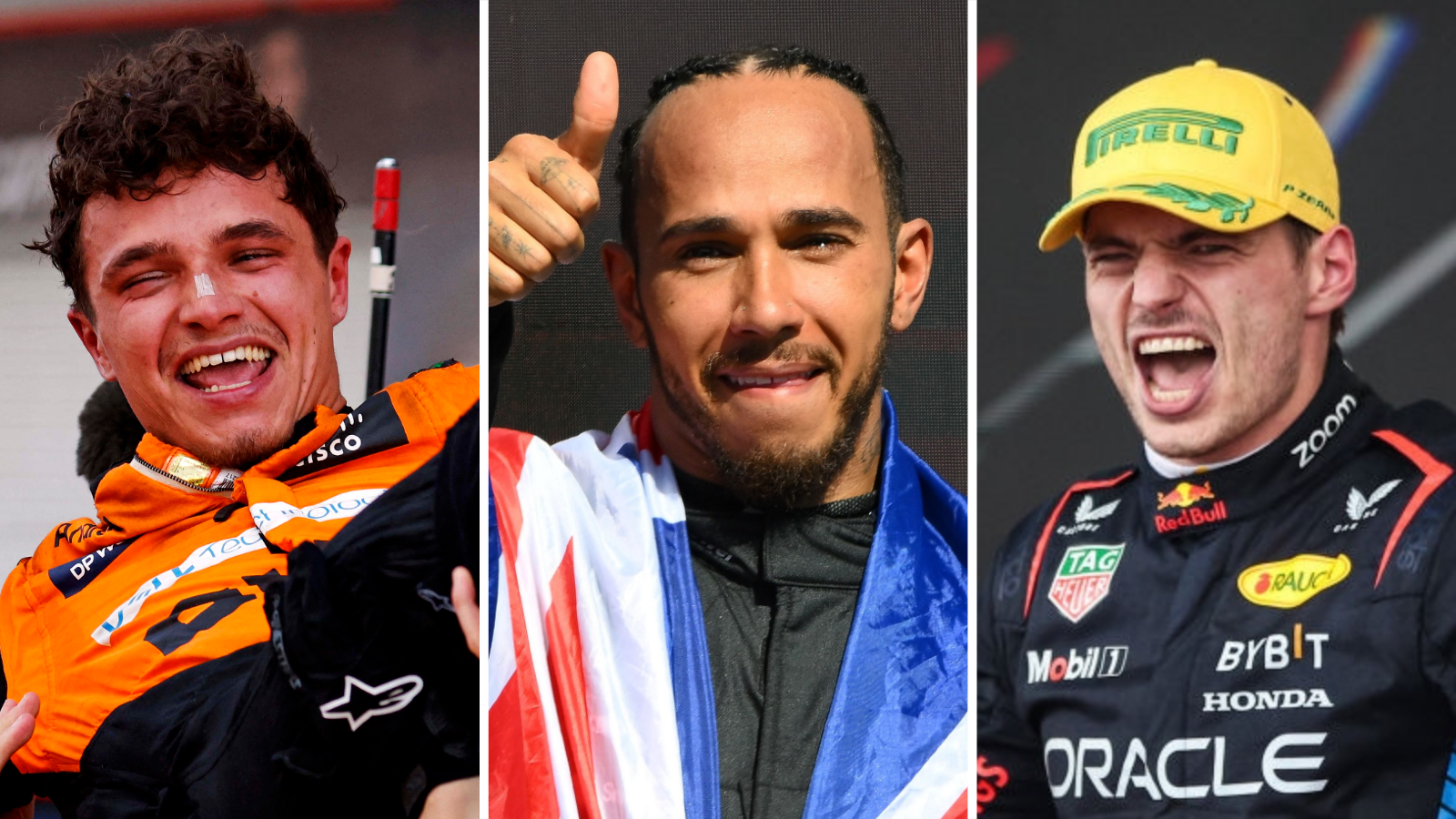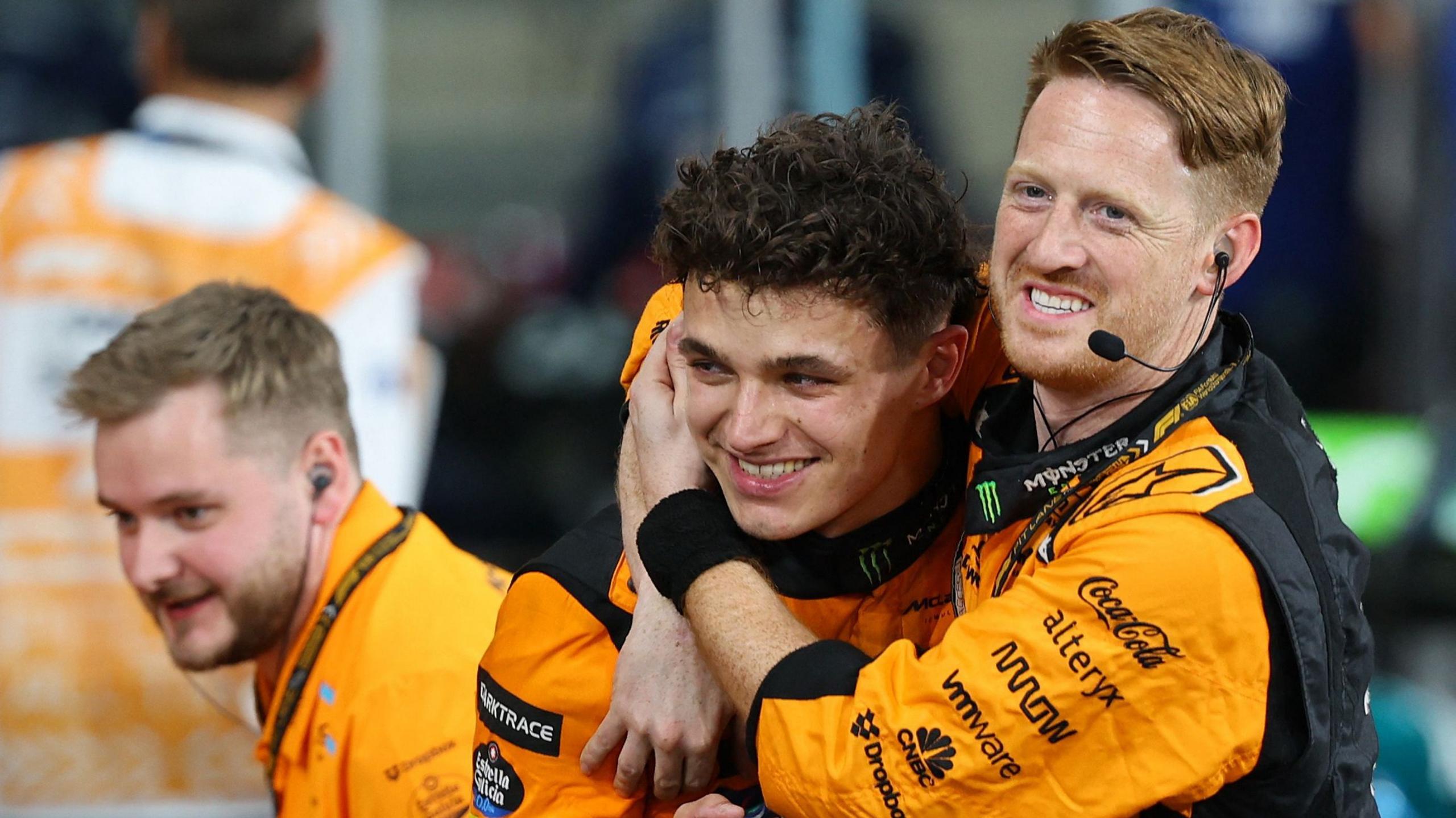Has the Russell row made Verstappen to Mercedes in 2026 less likely?
BBC F1 correspondent Andrew Benson answers your questions following the season-ending Abu Dhabi Grand Prix.
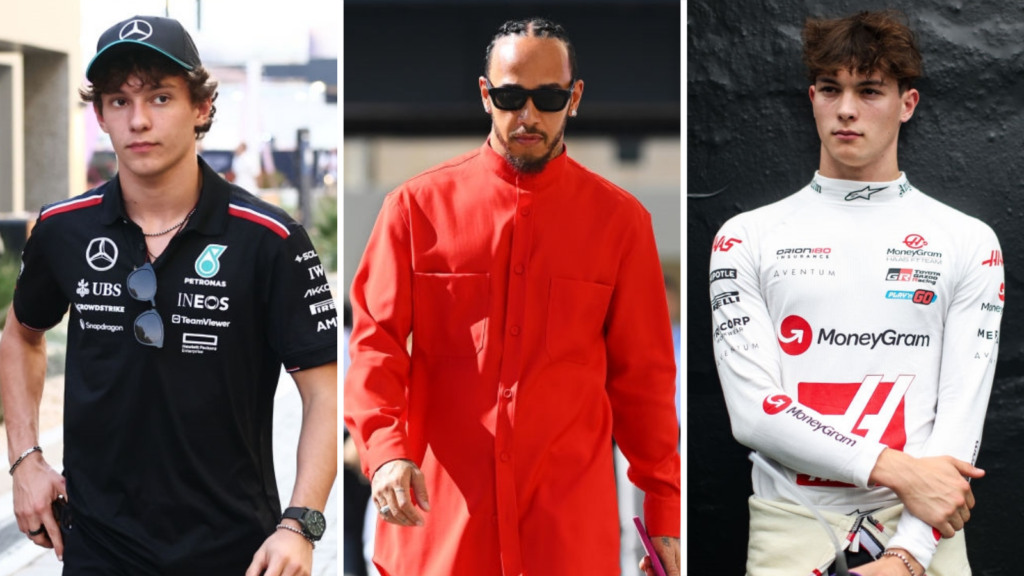
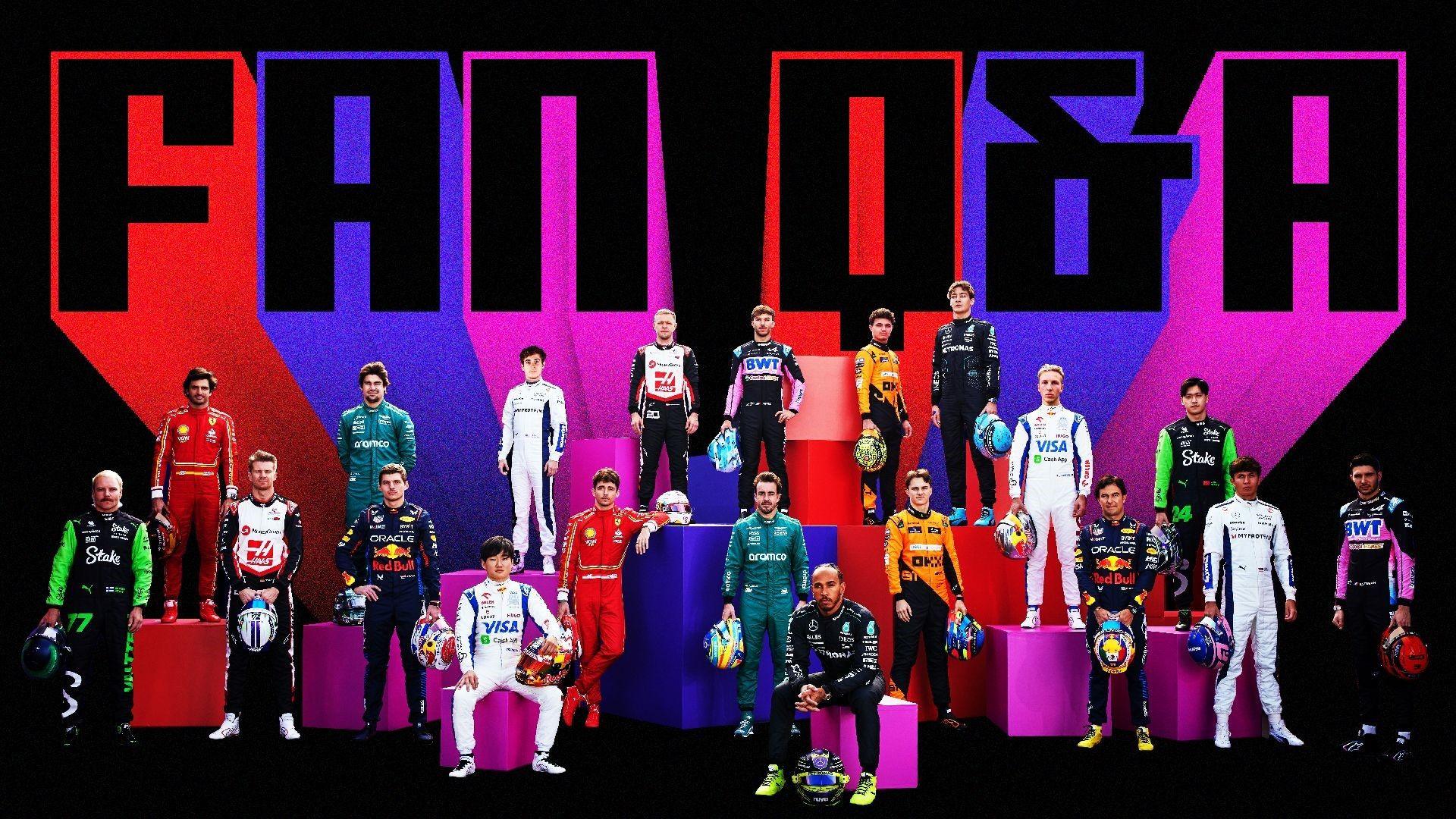
The 2024 Formula 1 season ended with Lando Norris’ win in Abu Dhabi securing McLaren’s first constructors’ championship in 26 years.
Ferrari duo Carlos Sainz and Charles Leclerc finished in second and third, with Lewis Hamilton just pipping team-mate George Russell to fourth in his final race for Mercedes.
BBC F1 correspondent Andrew Benson answers your questions after the season finale in Abu Dhabi.
Has this weekend’s controversy made it less likely Max Verstappen will go to Mercedes in 2026? – Tom
This is a reference to the spat that blew up between Verstappen and George Russell over their experiences in the stewards room in Qatar. And the answer is no.
Verstappen’s future beyond the end of 2025 remains very much open.
He has a contract with Red Bull until the end of 2028, but there are ways he can get out of it if he wants.
He has a number of options.
Mercedes is the obvious one – given the opportunity, Toto Wolff would sign Verstappen in a heartbeat, regardless of whether it was to be as team-mate to Russell or Andrea Kimi Antonelli, Lewis Hamilton’s replacement next year.
But Verstappen being Verstappen, he would be in demand everywhere.
At Ferrari, for example – what if Hamilton does not go well there? An opening might emerge.
At Aston Martin, Fernando Alonso is under contract to the end of 2026, but Verstappen might fancy waiting until 2027 and then joining up again with Honda and Adrian Newey after that if the car goes well that year.
He’s in no rush. He will take his time, see how 2025 develops and then decide.
Who has had the better of each other over the three seasons – Lewis Hamilton or George Russell? – Lohit
In some ways, this answer comes down to basic statistics of qualifying and race, although there is some nuance.
In qualifying, they were evenly matched through their first two seasons together in 2022 and 2023 – in 2022, Hamilton had the edge by 0.05secs on average, in 2023, Russell was faster by an average of 0.004secs over the season.
That has changed this year, when Hamilton has really struggled in qualifying, and in 2024 Russell has been 0.17secs faster, and Hamilton has out-qualified him only five times on merit.
The big question is: Why? Not even Hamilton seems to know. But the answer appears to be that he is not comfortable with the car, has found it more difficult than Russell to adapt to its particular requirements and sometimes over-drives.
In the championship, Russell has finished ahead two times out of three – in 2022 and 2024. The overall points total was 697-695 in favour of Hamilton.
This is where the nuance comes in.
In 2022, the stand-out Mercedes drives were predominantly by Hamilton, with the exception of Russell’s win in Brazil – think of Spain, Silverstone, Hungary, the Netherlands and the US Grand Prix. And in 2023, Hamilton was comfortably the better driver overall.
Even this year, although Russell finished ahead by 22 points, there have been races when Hamilton has been much more impressive – for example, Las Vegas and Abu Dhabi, when he started many places behind Russell but closed in and either finished right behind or even overtook him.
Of course, there were other races where Russell was more impressive than Hamilton, too.
The point is that, while Hamilton has come in for some criticism this year, it can’t be ignored that Russell is exceptionally good, so being beaten by him is no shame at all, even for a seven-time champion.
In Las Vegas, I interviewed Mercedes trackside engineering director Andrew Shovlin for a feature on the end of Hamilton’s time at Mercedes. I asked why Russell had the edge this year, and he started the answer by saying: “George is a particularly strong driver and he is particularly strong on a Saturday.”
The fact that Hamilton went into this season already knowing that he was leaving for Ferrari at the end of it also has to be considered as a contributory factor.
As Hamilton put it on Sunday in Abu Dhabi: “It has been probably the longest year of my life, knowing from the beginning I was leaving.”
As the elder statesmen of the sport now, do Fernando Alonso and Lewis Hamilton get along after the trauma of their McLaren partnership? – Ed
At McLaren in 2007, as Alonso has made clear many times, their problem was not so much with each other, as with the management and the way they handled the season.
But as far as I am aware, the relationship between Alonso and Hamilton has not changed much in recent years.
It’s pretty straightforward. They are never going to be best friends. There appears to be some kind of character clash there, and they each have quite different views of the world, even if in some ways they are probably more similar than either would like to admit.
As Hamilton put it in an interview with BBC Sport and a couple of other outlets in 2022: “We’re much, much different people and with much different values.”
But they have a high respect for each other’s ability and they rub along well enough on a superficial level when they end up in the same vicinity, it seems.
However, as has been seen in recent years, the inherent clash of personalities there does break out into the open sometimes, especially when they have an on-track contretemps.
Did McLaren err in not allowing Lando Norris to become the number one driver earlier, which would likely have put them as driver and constructors’ champions? – Tracey
It’s debatable – to say the least – whether favouring Norris earlier would have made him world champion, as there were actually very few times when McLaren could have, as usually he was ahead of Oscar Piastri.
The obvious ones are Hungary and Monza.
In Budapest, Norris was on pole but Piastri took the lead at the first corner, and then there was the issue of whether Norris should let Piastri back past after the way the team ran the strategy ended up with Norris ahead.
It would have been very harsh on Piastri to keep Norris ahead – he had earned the win. But let’s say they had done it – that’s seven more points for Norris.
In Monza, there is a strong argument to say McLaren should not have allowed them to race on the first lap, because Piastri’s brilliant passing move on Norris at Turn Four ended up with Charles Leclerc’s Ferrari nipping ahead of Norris into second place, from where he went on to win.
It’s impossible to know whether McLaren would have won had this not happened, because Ferrari may still have tricked them with the one-stop. But even if Norris had won rather than finished third, that’s an extra 10 points.
Verstappen finished 63 points ahead of Norris. So it’s hard to argue that team orders in these two events would have made Norris champion – they wouldn’t.
But that’s not to say that McLaren don’t feel there is something to learn from the way they handled this season.
McLaren Racing chief executive officer Zak Brown was asked before the race in Abu Dhabi last weekend whether he thought it would have been better to favour Norris earlier.
He said: “No. I don’t tend to regret things. I tend to learn and go, ‘I would have done that differently.’ Otherwise you live in a series of regrets.
“It was hard, because Oscar was never that far behind Lando [in the championship]. We started getting noise that we should favour Lando halfway through the season, which was really early.
“I think what we learned, like, in Monza was we went into Turn Four first and second and came out first and third, but the instruction we gave them was more vague. It was subjective, it was: ‘Don’t take risks.’
“So Lando was thinking, ‘I don’t need to block that hard because I don’t need to take a risk.’ And Oscar was thinking: ‘Hey, door looks pretty open to me.’
“In hindsight, we could have been more definitive in, ‘how you enter Turn Four is how you need to come out of Turn Four. Clear everyone and then go race.’
“I like that we let our guys go race. But if I look at Monza, that’s what we learned. That we need to be more definitive, as a driver’s view of what’s risky is subjective.”
Have Red Bull engineered their car so far towards Max Verstappen that no other driver could make it competitive? – David
To the first clause of this question, the Red Bull engineers would say no. But the real answer is, ‘no but, yes, kind of’.
Red Bull would say that they don’t engineer the car to favour Verstappen; they design the fastest car they can, and then develop it in a direction that, from the experience of racing it, suggests where it can be improved.
However, it’s inevitable that if one driver is demonstrably, consistently faster than the other, any team is likely to give more weight to their feedback than to his team-mate’s.
So, if Verstappen feels he can go faster if the car has a more responsive front – which he usually does – they’re more likely to develop it so it has more front downforce and grip than if his team-mate was saying that he wanted more rear stability, for example.
Alex Albon would say this was the situation in which he ended up when he was Verstappen’s team-mate in 2020 – Albon likened the steering response of the Red Bull to a computer games controller turned up to maximum sensitivity.
But that’s a general answer. Specifically, this year, that is not what Red Bull’s problem has been.
The issue for them has been that the car’s balance has not been “connected”, as drivers put it these days – ie the front and rear behave differently, sometimes from corner to corner, sometimes within a single corner. Aston Martin have had a similar problem.
This makes the car very difficult to drive. And in that situation – in any situation, frankly – a great driver such as Verstappen is always going to adapt better than a merely good one, such as Sergio Perez.
The second part of the question is whether any other driver would be able to handle this situation better.
It’s a pretty safe bet to say that the very best – Lewis Hamilton, Charles Leclerc, George Russell, Lando Norris, Fernando Alonso – definitely would.
Would that extend to Liam Lawson or Yuki Tsunoda, the two drivers Red Bull are considering to replace Perez in 2025?
Well, as things stand, it looks like we’re going to find out, and that Lawson will be the latest experiment.
Why does bad driving (a collision) that severely disenables another car never result in disqualification? – Graham
Because it’s generally not considered a serious enough offence for that punishment.
Drivers can be disqualified, but it tends to happen only for the most egregious flouting of the rules, or ignoring of officials’ orders.
A simple error in a racing situation – even if it’s a particularly clumsy one, as a couple were in Abu Dhabi on Sunday – does not meet the threshold.

